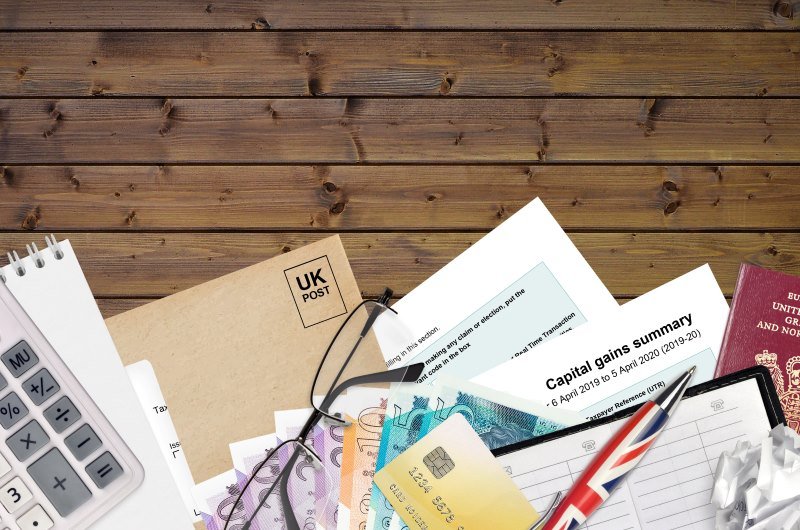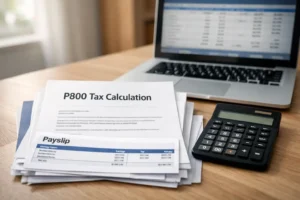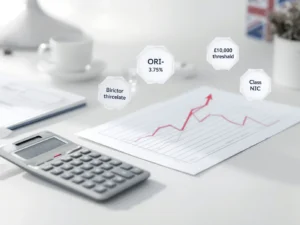Being self-employed in the UK offers a great deal of flexibility and independence, but it also comes with the responsibility of managing your own tax affairs. One of the key responsibilities that comes with this path is managing your tax obligations. To navigate the complexities of self-employment taxation, it’s crucial to maintain accurate and organised records. This article outlines the vital tax documents you should keep to ensure compliance and ease during your Self-assessment process.
Table of Contents
ToggleUnderstanding Self-Assessment in the UK
In the UK, Self-Assessment is the method used by HM Revenue and Customs (HMRC) to collect Income Tax from those who are self-employed or earn income outside of standard employment. If your earnings surpass £1,000 in a tax year, you are required to submit a Self Assessment tax return. This includes income from freelance work, rental properties, and other sources. Proper documentation is essential for accurately reporting your income and expenses.
Key Tax Documents to Keep
1. Personal Identification
To facilitate your tax filing, ensure you have the following personal identification:
- Unique Taxpayer Reference (UTR): A 10-digit number assigned by HMRC when you register for Self Assessment.
- National Insurance Number: This number is crucial for tracking your contributions and entitlements.
- Basic personal details: Such as your full name, address, and contact information.
2. Income Records
Accurate documentation of all income sources is essential:
- Invoices: Keep copies of all invoices issued for services provided or products sold.
- Payment confirmations: Retain records from payment processing platforms like PayPal or bank statements that reflect deposits related to your business activities.
- Form 1099 or similar documents: If applicable, maintain records of any forms that report your income.
3. Expense Documentation
As a self-employed individual, you can deduct certain business-related expenses from your taxable income. Important documents include:
- Receipts: For all business purchases, such as office supplies, equipment, and materials.
- Travel logs: Document mileage if you use a vehicle for business purposes, along with receipts for public transport or accommodation.
- Professional fees: Keep records of payments made for services like accounting or legal assistance.
4. Previous Tax Returns
Having copies of past tax returns can be useful for reference:
- Your previous year’s Self Assessment tax return.
- Any correspondence with HMRC regarding prior submissions.
5. Business Structure Documentation
Depending on how your business operates (as a sole trader, partnership, etc.), retain relevant documents:
- Business registration papers: If applicable.
- Licenses or permits required for legal operation in your industry.
6. Estimated Tax Payments
If you’ve made estimated payments throughout the year, keep track of these:
- Copies of documentation showing any payments made to HMRC.
Additional Considerations
1. Health Insurance Documentation
If you pay for health insurance as a self-employed person, keep records of these payments as they may be deductible:
- Receipts for premium payments and any relevant correspondence.
2. Pension Contributions
If you contribute to a pension scheme, maintain documentation of these contributions:
- Statements from pension providers detailing your contributions over the year.
3. Employee Records (if applicable)
If you employ staff or engage contractors, ensure you have:
- Copies of P60s and P45s for employees.
- Relevant forms issued to contractors.
Tips for Organizing Your Documents
To manage these documents effectively:
- Establish a filing system: Organise records by category (income, expenses, identification) either physically or digitally.
- Utilise accounting software: Consider using software that helps track income and expenses automatically.
- Regularly update records: Dedicate time monthly or quarterly to update your documentation to avoid last-minute rushes during tax season.
Conclusion
Maintaining thorough documentation is crucial for self-employed individuals in the UK not only to comply with tax regulations but also to maximise deductions and minimise potential liabilities. By organising essential tax documents—from income records to expense receipts—you can streamline the filing process and possibly reduce taxes owed. Take proactive steps now by reviewing what documents you currently possess and identifying any additional items needed as you prepare for the upcoming tax season. By adopting good record-keeping practices throughout the year, self-employed individuals can alleviate stress during tax time while ensuring they meet their legal obligations effectively and efficiently. This version has been rephrased and restructured while retaining key information relevant to self-employed individuals in the UK regarding essential tax documents.





